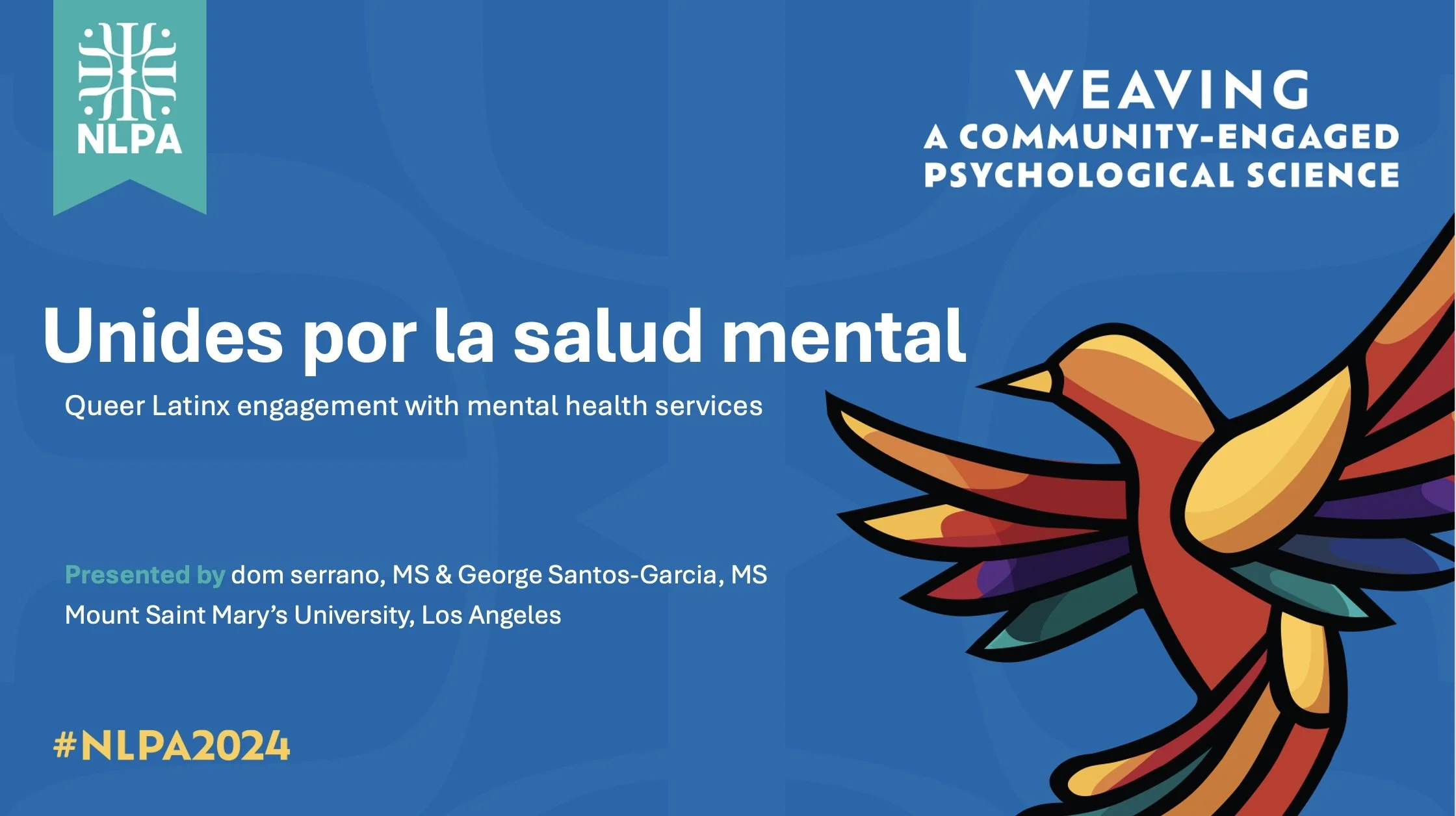dom serrano
Presentations
-

Decolonizing Gender Through Indigenous Knowledge
Genders outside the binary were suppressed and historically erased by colonialism in an attempt to force Indigenous people to fit the colonizer’s Judeo-Christian ideals and their existing gender stereotypes (Wilson, 2015; O’Sullivan, 2021). To increase representation and move toward trans joy, researchers must increase opportunities for trans, non-binary, and gender non-conforming people to define their own genders (Bettergarcia, 2023; Suen et al., 2020). The aim of this study is to explore the gender experience of gender-diverse, non-binary, genderfluid, or Two-Spirit people of Indigenous and/or Latinx descent.
-

Unveiling and Dismantling Coloniality through Research
This presentation was given as a part of the Mount Saint Mary’s University Psychology Department Brown Bag Series, in which I covered the aforementioned gender study, presented an argument against medical paternalism, and introduced an ethic of care.
The extension and Westernization of paternalism to the medical space, in which providers believe they are doing what they believe is best for the client, violates the ethical principle of autonomy. This presentation reviewed many ways coloniality is pervasive in medical and psychological care. Additionally, I presented an ethic of care based on bell hooks’ ethic of love, including principles of care, respect, commitment, truth, responsibility, and knowledge, with the primary goal of letting go of “our obsession with power and domination” (hooks, 1999, p. 87).
-

Unides por la Salud Mental: Queer Latinx Engagement with Mental Health Services
This session focused on the specific challenges faced by Latinx LGBTQ+ individuals, including cultural stigmas, systemic barriers, and the critical need for services that are both inclusive and affirming. Participants engaged in meaningful dialogue about the intersectionality of LGBTQ+ and Latinx identities and how these intersections impact access to mental health care. This discussion also included the often-overlooked resilience within the queer Latinx community and provided a forum for sharing strategies that have proven effective in improving mental health outcomes and fostering engagement with psychological services. Discussants explored protective factors and their applicability to Queer Latinx individuals, including familismo and Latinx-centric services or LGBTQ-centered services (Abreu et al., 2023; Roberts & Christens, 2021).
